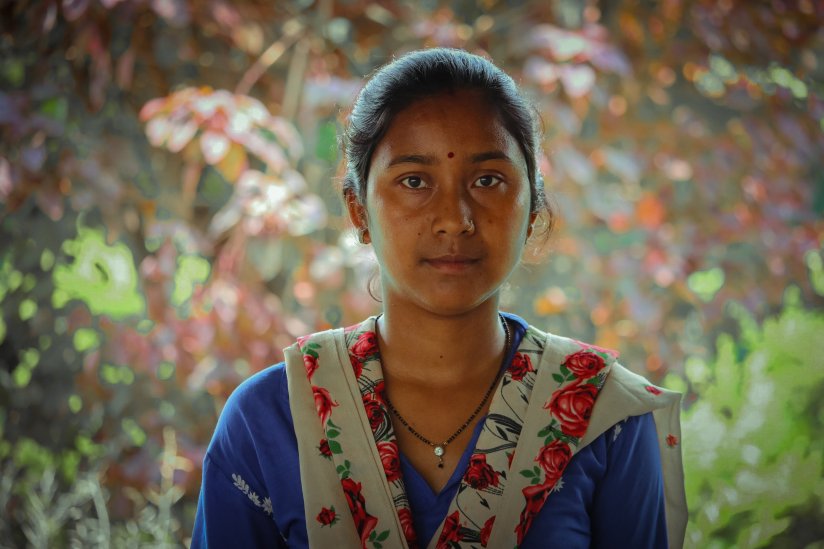Giving my daughter the childhood I never had
Friday, June 28, 2019

By Pooja Chaudhary, 24, Surkhet
Trainee, Kopila Valley Women's Center
(some identifying details have been changed to protect the privacy of the individual)
While other children my age went to school, I worked on the farm until bloody blisters formed on my hands. As the eldest of three daughters, I shouldered every responsibility to help my family earn money. I worked not just on my family’s farm, but also on farms of other villagers, regardless of heat or rain.
My parents were slaves until Nepal’s government outlawed the practice two decades ago.* My family couldn’t support me financially so I was married off as a teenager. But my husband, a daily wage laborer, turned out to be abusive. So I left him a few years ago to stay with my parents and raise my now five-year-old daughter.
I continued to work hard. I carried cement for construction work. It badly damaged the skin of my hands and legs. But I’m proud that my hard labor provided for my daughter’s food and school fees. I want her to have the opportunities I never did.
Now I want to support my daughter in a more sustainable way to give her the future she deserves. Five months ago, I enrolled in a weaving training program offered by the Kopila Valley Women’s Center. I ride my bicycle for an hour each way every day to get there. These hands no longer tear from carrying cement bags, but weave my daughter’s future.
I know how difficult it is to work for a living as a child. The work of the Kopila Valley School makes me happy, and gives me hope for the future. So many of these young Kopila students could have been working had the school not intervened. My heart leaps with joy every time I see them playing. And now, thanks to the Kopila Valley Women's Center, my daughter will play, too.
*The system of agricultural bonded labor in Nepal started hundreds of years ago. Laborers were forced to work the land, often as repayment for an ever-increasing debt that could be passed from generation to generation. The practice was officially abolished by the government of Nepal in the year 2000. Read more.